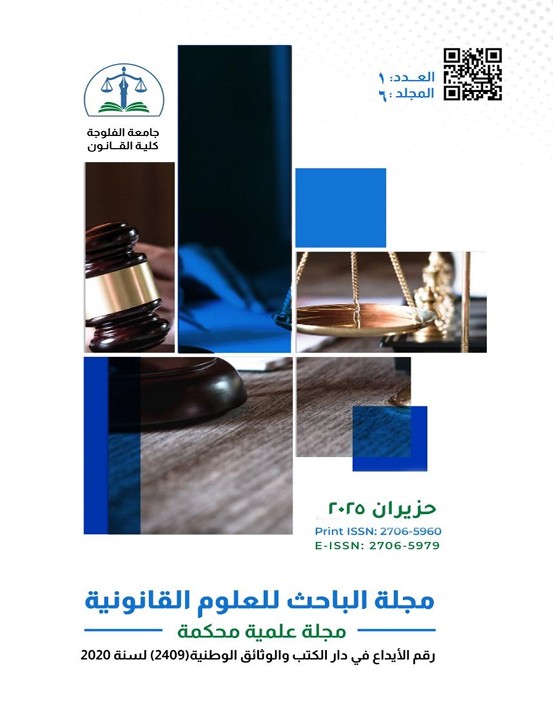Mechanisms of the United Nations for Achieving Cybersecurity and Their Impact on Iraqi Legislation
DOI:
https://doi.org/10.37940/JRLS.2025.6.1.3Abstract
In a constantly changing world, the only constant is change. With the emergence of various forms and types of cyber threats targeting devices and networks, cybersecurity risks have become multifaceted. These risks do not only affect individuals and organizations but also extend to
jeopardizing the interests of nations and governments, exposing them to breaches, violations, and
dangers. Hence, the need to protect cybersecurity has become urgent to maintain the confidentiality of information across its various types and domains. This requires adopting all
necessary measures and actions to deter malicious actors. From this perspective, the importance of
researching the mechanisms and strategies adopted by the United Nations to maintain cybersecurity comes to light. The research aims to highlight the most significant decisions and
recommendations related to this issue, in addition to examining the regional role in this domain,
including the resolutions and measures taken to protect cybersecurity. The study also seeks to
analyze the impact of the international and regional roles in achieving cybersecurity through the
measures and strategies adopted by the General Assembly and the Security Council. Additionally,
the research will shed light on Iraqi legislation, clarifying the key measures and strategies implemented to ensure cybersecurity in Iraq.
Keywords:
Cybersecurity, United Nations, Security Council, Iraqi Legislation, strategies
Published
How to Cite
Issue
Section
License
Copyright (c) 2025 Researcher Journal for Legal Sciences

This work is licensed under a Creative Commons Attribution-NonCommercial 4.0 International License.
This is an open-access journal under the CC BY 4.0 license (http://creativecommons.org/licenses/by/4.0/)





